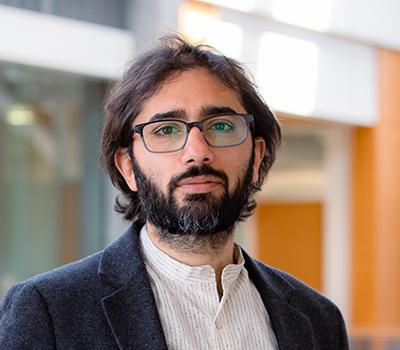Houssam Abbas, assistant professor of electrical and computer engineering, has received a Faculty Early Career Development (CAREER) Award from the National Science Foundation. The award includes a grant of nearly $500,000 over five years.
Increasingly, autonomous systems — such as self-driving cars, unpiloted aerial vehicles, and assistive robots in medical facilities — interact with people on a daily basis. Abbas will use his grant to further develop computational ethics as an engineering and scientific discipline to be used in the design of such systems. Because these machines interact with people in their daily lives and in their lived spaces, Abbas wants to ensure that ethics are built into the systems in a traceable and rigorous manner.
For example, a self-driving car may encounter a situation where it needs to make an ethically laden decision: Given no other choice, does it run into a wall and potentially injure its passengers, or run into a pedestrian? While this question cannot be resolved with purely technical solutions, there is an urgent need for an engineering process to model, verify, and analyze autonomous systems’ behaviors in such situations. This is particularly true in more ambiguous situations, which are likely to form the majority of cases encountered in practice.
Abbas notes that ethics have different definitions in different communities.
“It is not enough that these systems are probably safe,” Abbas said. “We also expect that they abide by the community’s ethical principles.”
Abbas aims to develop engineering tools to allow system designers to formalize, program, and verify the implementation of ethical principles.
“When philosophers and policy makers are debating these questions, there will be a way to experiment with the consequences of different ethics rule sets,” he said.




